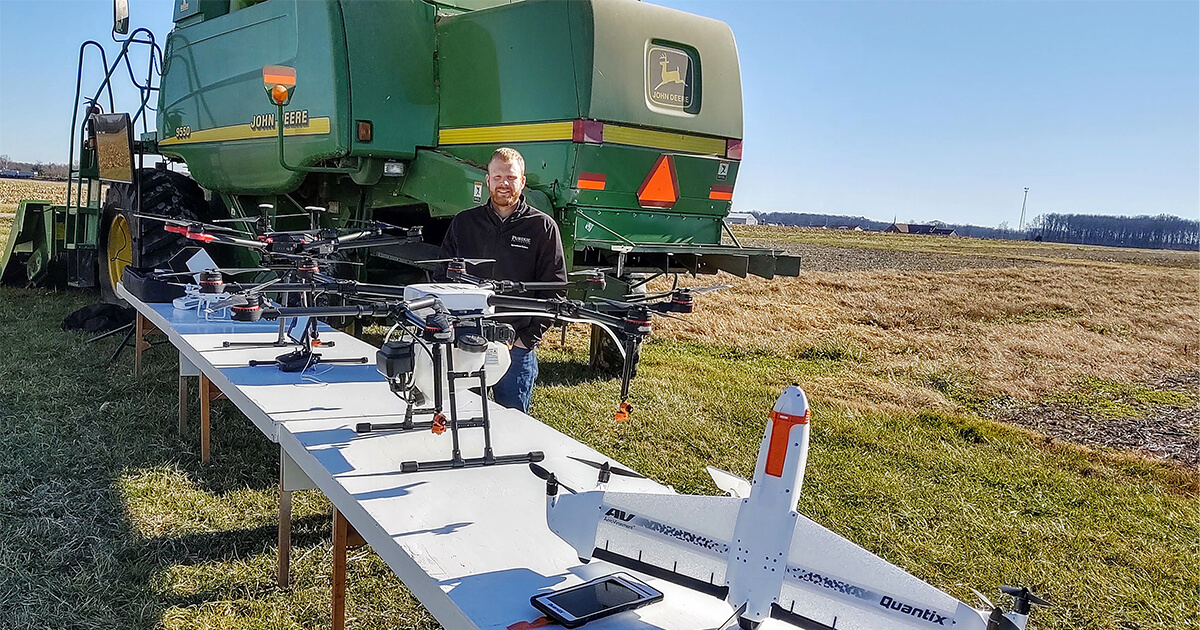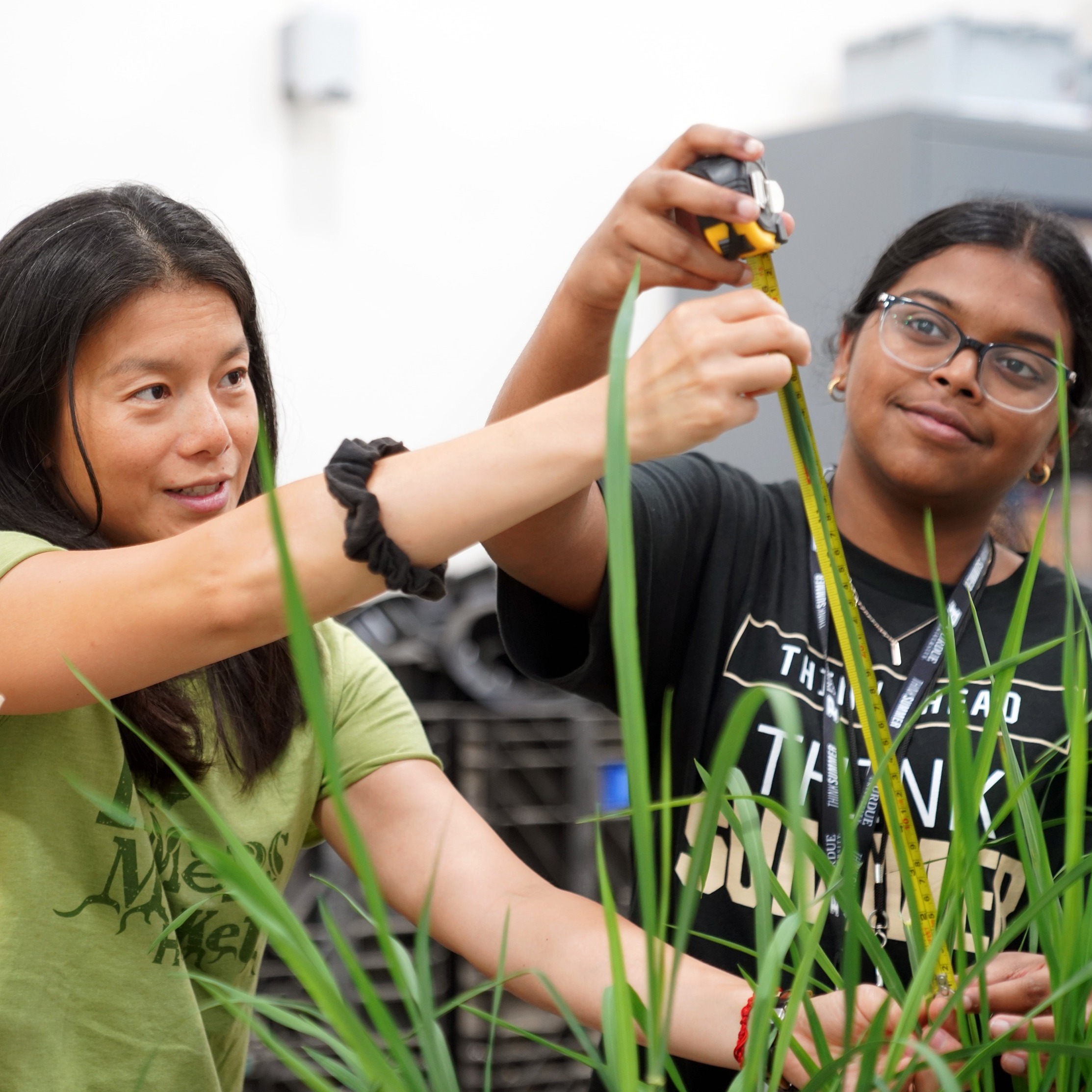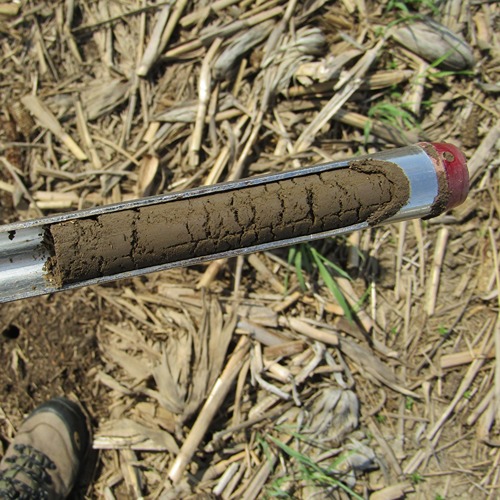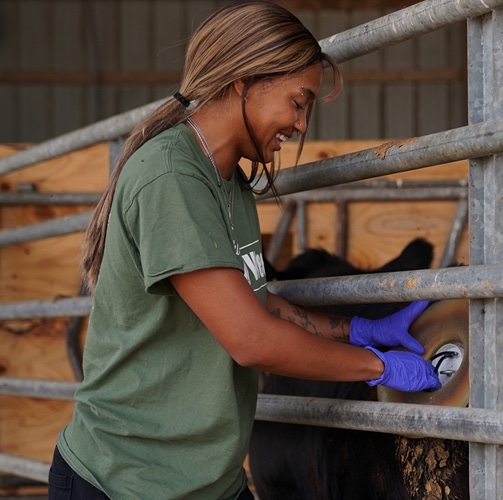A
bout the feature
Many people are involved in the remarkable range of programs, services and facilities that undergird research in the College of Agriculture. Collectively they’re integral to the college fulfilling its research mission. “Behind the Research” explores their individual roles. Each academic year, we profile six people whose work supports the College of Agriculture’s global reputation for developing innovative, multidisciplinary solutions to challenges and then putting those solutions into action.
Alex Helms, Farm Technical Coordinator, SEPAC and Chief Supervisor of Purdue University UAV Instruction
- Successfully completed Federal Aviation Administration-required documentation and demonstrations that allow Purdue University to legally dispense crop protection products via UAVs.
- Worked with Dr. Jim Camberato to develop potassium fertilizer research at SEPAC in 2019 that is expanding to other Purdue Agricultural Centers in 2020.
- Helps acquire essential equipment needed for high-quality agricultural research at SEPAC.
Some days, Alex Helms has a difficult time transitioning from his job as the farm technical coordinator at the Southeast Purdue Agricultural Center (SEPAC) to working on his uncles’ farm not far from his workplace. At SEPAC, he uses an autosteer tractor and automated system to spread fertilizer. On the family-run farm, he drives the tractor himself and counts rows. “Going from one to the other can be humbling,” he says. “I definitely get a different perspective on how my uncles or neighbors manage their crops.”
SEPAC is only 20 minutes from where Helms grew up, in the small farming community of Westport, Indiana. In fact, Helms was active in FFA and soil judging in high school — activities that occasionally took him to SEPAC. “But I didn’t realize the extent of what happens here,” he says.
After earning a BS in agronomy and agricultural economics at Purdue in 2015, Helms worked for Monsanto in soybean seed production in Illinois. He also began working on an MS in agronomy through an online program at Iowa State University.
Helms heard about the opening at SEPAC through a high school friend, contacted SEPAC’s superintendent, Joel Wahlman, and toured the farm. Being part of SEPAC’s close-knit team appealed to Helms, as did the idea of moving back close to family and helping his uncles in the evenings and on weekends. He joined SEPAC in fall 2016.
Many of Helms’s responsibilities at SEPAC involve precision agriculture — “making sure the tractors are driving themselves and the computers are hooked up.” He relies on Wahlman’s experience and help, he adds.
Four employees work on the agricultural side at SEPAC, and each is quick to pitch in as needed, Helms says. “We’re a small workforce, so sometimes we have to cover each other’s jobs.” So he also may be called on to work with researchers on campus to design their plots; compute an accurate fertilizer application; and ride in the tractor spreading the fertilizer.
Soon after Helms arrived at SEPAC, Wahlman suggested he pursue something of personal interest that might benefit the center. Together they began to investigate the use of unmanned aerial vehicles (UAVs), or drones. “Nobody had begun to work with them yet on a larger scale, so Joel and I were at the leading edge of getting an FAA license and learning how to use UAVs in crop management. It’s blossomed pretty quick across Extension,” Helms says.
Helms was the first Purdue employee to complete FAA Part 137 training for certification as an agricultural aircraft operator. He not only helped initiate the use of UAVs for crop and forestry management at the Purdue Agricultural Centers, but he also has assisted in training Extension educators through UAV and software demonstrations.
His job also allows Helms to capitalize on his interest in soils. He has been working with Purdue soil fertility specialists on his own master’s research at SEPAC — on long-term potassium plots — and will extend this research to other Purdue agricultural centers in the coming year. Progress toward his MS has been slow but steady. He takes one class each semester and anticipates completing the six-year effort in summer 2021. He balances work and graduate study with a new daughter he and his wife welcomed six months ago.
Helms enjoys that his work contributes to research and education in the College of Agriculture: “My job allows me to provide researchers and students the opportunity to perform high-quality research through advanced agricultural technology and data management, which is especially pertinent today with the importance of ‘big data.’”






